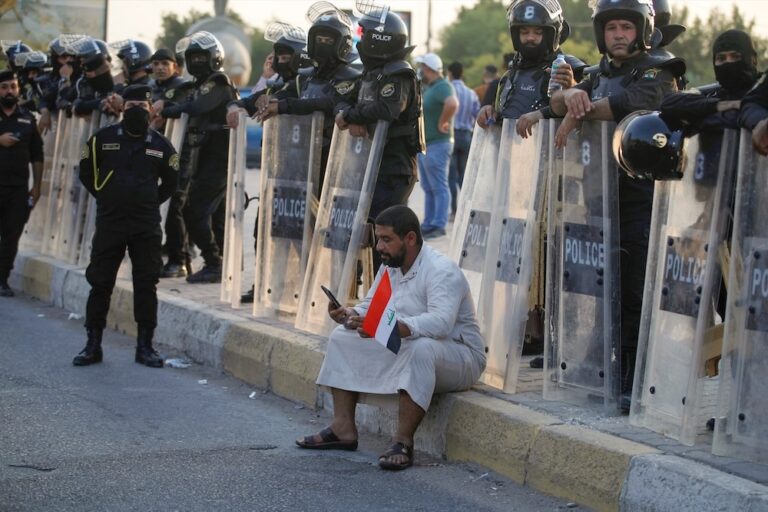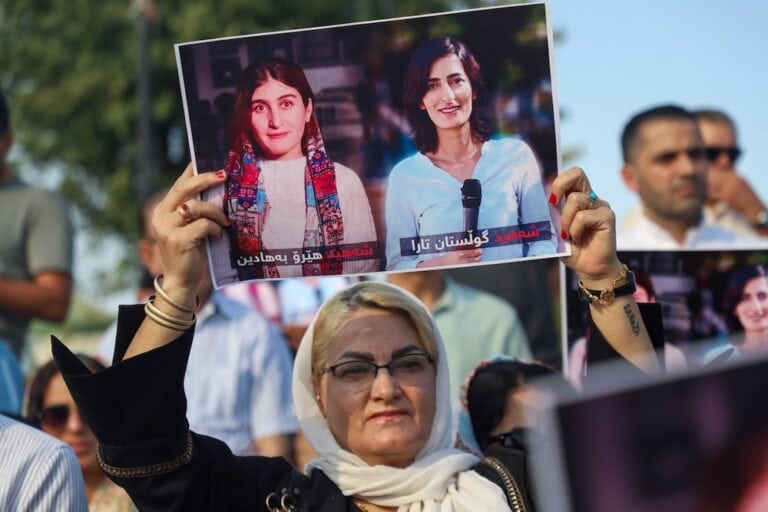The Draft Law cites, as its basis, multiple negative consequences of the "information revolution" without acknowledging the positive role technology performs in today's society, not least of all in enhancing the enjoyment of fundamental human rights. The Draft Law provides no guarantees for the right to freedom of expression or freedom of information.
(ARTICLE 19/IFEX) – In October 2011, ARTICLE 19 analysed the Draft Informatics Crimes Law of Iraq (“Draft Law”) to assess its compliance with Iraq’s obligations under international human rights law. ARTICLE 19 finds the Draft Law fundamentally flawed from a freedom of expression perspective; if adopted, it will significantly undermine the right to freedom of expression and freedom of information in the country. ARTICLE 19 recommends that the Iraqi Council of Representatives reject the Draft Law in its entirety.
The Draft Law is problematic at its inception; the purposes of the Draft Law cite multiple negative consequences of the “information revolution” without acknowledging the positive role technology performs in today’s society, not least of all in enhancing the enjoyment of fundamental human rights. The Draft Law provides no guarantees for the right to freedom of expression or freedom of information.
ARTICLE 19 believes that the Draft Law fundamentally distorts the legitimate bases for imposing restrictions on the right to freedom of expression and access to information. Each provision pursues numerous disconnected and ill-defined objectives, several of which are either not legitimate grounds for restricting the right to freedom of expression or are overly broad.
For example, Article 3 of the Draft Law prohibits computer use that compromises the independence of the state or its unity, integrity, safety or any of its high economic, political, social, military or security interests. This essentially grants law enforcement an incomprehensibly broad power to censor any electronic expression it deems necessary. Article 3 is among a number of provisions that carry a maximum sentence of life imprisonment.
Article 6(4) of the Draft Law appears to prohibit the publication or broadcasting of any false or misleading facts with the intent to weaken trust in the electronic trading and monetary systems. This feasibly incorporates any expression that intends to encourage critical discussion of these systems and is a flagrant attempt to limit the right of people in Iraq to engage in political speech.
Moreover, the Iraqi Government purports to grant itself the legal authority to impose its own moral code on the people of Iraq. The broadest of these restrictions, Article 21(b), imposes severe custodial and financial penalties on “whoever violates principles, religious, moral, family, or social values (. . .) through information networks or computers.” Again, this is an impermissibly broad content-based restriction that targets a spectrum of innocuous and harmless expression that the state has no interest in regulating.
The Draft Law further erodes the rights to freedom of expression and freedom of information by criminalising electronic defamation (Article 22(3)) and by failing to protect the right of journalists to protect their sources (Article 13(1)(c)).
For these reasons, ARTICLE 19 requests that the Iraqi Council of Representatives reject the Draft Law in its entirety. In light of the criticism provided in this and previous analyses of other legislation related to freedom of expression, ARTICLE 19 calls on the Iraqi Government to engage in comprehensive legal reforms to safeguard fundamental human rights and adopt legislation that promotes and protects the rights rather than suppresses them.
Recommendations:
1. The Iraqi Council of Representatives should reject the Draft Law in its entirety.
2. Civil society organisations and other stakeholders should withhold their support for the Draft Law.
3. The Iraqi Council of Representatives should engage in comprehensive reforms to Iraq’s legal framework to guarantee the right to freedom of expression and freedom of information for everyone in Iraq.
This analysis has been commissioned by IREX Iraq.


